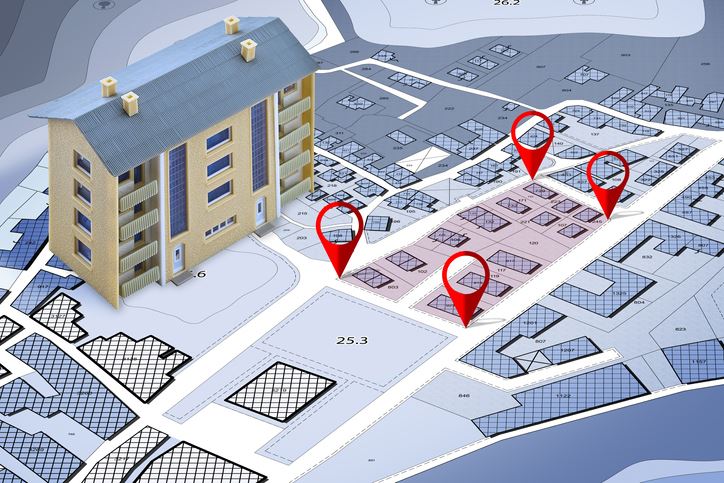In a recent Boston Globe article, high acquisition costs and the rising cost of construction are blamed for standoffs and standstills over housing production in Boston. Missing from this diagnosis is the litigation enabled by Boston’s restrictive zoning code, which allows project opponents to mire Boston Zoning Board of Appeal decisions in lengthy and costly legal challenges. Even if ultimately successful, the costs of those zoning appeals fall on developers and property owners, sometimes to the detriment of the developments themselves. Appeals in court from zoning decisions can take as long as 18-24 months, a significant delay in the development process.
Fortunately, there is a tool baked into Boston’s zoning laws which can serve as a check on opponents who challenge a project by appealing a Boston Zoning Board decision. Under the Boston Zoning Act, officially known as An Act Authorizing the City of Boston to Limit Buildings According to Their Use or Construction to Specified Districts, a court may require a person who appeals zoning relief to file and post a bond “to indemnify and save harmless the person or persons in whose favor the decision was rendered from damages and costs which he or they may sustain” if the zoning decision is upheld. In other words, a successful developer or property owner may recover certain damages and costs from the zoning appeal up to the amount of the bond. The person who appeals must pay the cost for the bond.
The purpose of the Boston Zoning Act’s bond provisions is two-fold. First, they’re supposed to discourage frivolous zoning appeals. Second, they offer protection to developers and property owners whose projects are permitted by a zoning decision but stalled during a time-consuming and expensive zoning appeal.
The Boston Zoning Act’s bond provisions permit courts to require bonds of up to $25,000 in appeals involving projects less than 50,000 square feet. There is no defined limit for bonds in appeals involving projects greater than 50,000 square feet. In setting the exact bond amount, courts consider the merits of the zoning appeal, the plaintiff’s resources, and the relative harms to the developer or property owner. In this latter category, it’s important to highlight the increasing costs of construction materials and labor due to delay and holding costs during the period that the project is stalled. If a bond is required and the zoning board decision is later upheld, some or all of the bond may be paid out to the developer or property owner.
There has been little to no recent case law interpreting the Boston Zoning Act’s bond provisions, but a recent Supreme Judicial Court case involving the similar, but not identical, bond provisions of the Massachusetts Zoning Act is useful guidance. In December, the SJC decided Marengi v. 6 Forest Road LLC, which extends the applicability of the Massachusetts Zoning Act’s bond provisions to cases involving challenges to comprehensive permits under chapter 40B. In the same decision, the SJC clarifies what are recoverable costs under the Massachusetts Zoning Act’s bond provisions. First, the SJC excludes from recoverable costs the developer or property owner’s attorney’s fees, carrying costs, or delay damages, such as increases in the cost of construction materials and labor. Recoverable costs can, however, include fees incurred to retain expert witnesses or pay traffic, engineering, environmental or other consultants during litigation.
Second, relying on the Massachusetts Zoning Act provision that costs should not be awarded “unless it shall appear to the court that said appellant or appellants acted in bad faith or with malice in making the appeal to the court,” the SJC instructs that courts should not require bonds unless an appeal appears to be so devoid of merit and the court may reasonably infer bad faith.
The Marengi decision likely has some limited impact on how the Boston Zoning Act’s bond provisions will be interpreted moving forward. To the extent that bonds secure “costs,” courts will likely limit recoverable costs in Boston zoning appeals to actual or reasonable costs of having to defend a zoning appeal, such as expert and consultant witness costs, but excluding attorney’s fees. Also, as in the Massachusetts Zoning Act, costs under the Boston Zoning Act’s bond provisions are recoverable only if “it shall appear to the court that [the appealing party] acted in bad faith or with malice in appealing to the court.”
There is, however, one notable difference between the Boston Zoning Act and the Massachusetts Zoning Act’s bond provisions. Unlike the Massachusetts Zoning Act, the Boston Zoning Act’s bond provisions offer security against damages in addition to costs. To the extent that Marengi limits recoverable costs under the Massachusetts Zoning Act to exclude carrying costs or delay damages from the increasing cost of construction materials and labor while the project is stalled, this limitation should not apply to bonds under the Boston Zoning Act, which also secure against damages. In fact, Marengi specifically points out that the Boston Zoning Act is different from the Massachusetts Zoning Act in this regard.
Developers and property homeowners should not forget about this useful tool to mitigate the impacts of lengthy and expensive zoning appeals. Even after Marengi, the Boston Zoning Act’s bond provisions remain an effective tool in the zoning process—perhaps even more so in Boston than any other municipality in Massachusetts.
You can read Sammy’s previous blog post about the decision in Marengi v. 6 Forest Road LLC here. If you have any questions about zoning in the City of Boston, please feel free to contact Attorney Sammy Nabulsi at ssn@rose-law.net. Learn more about Rose Law Partners LLP’s land-use practice here.


